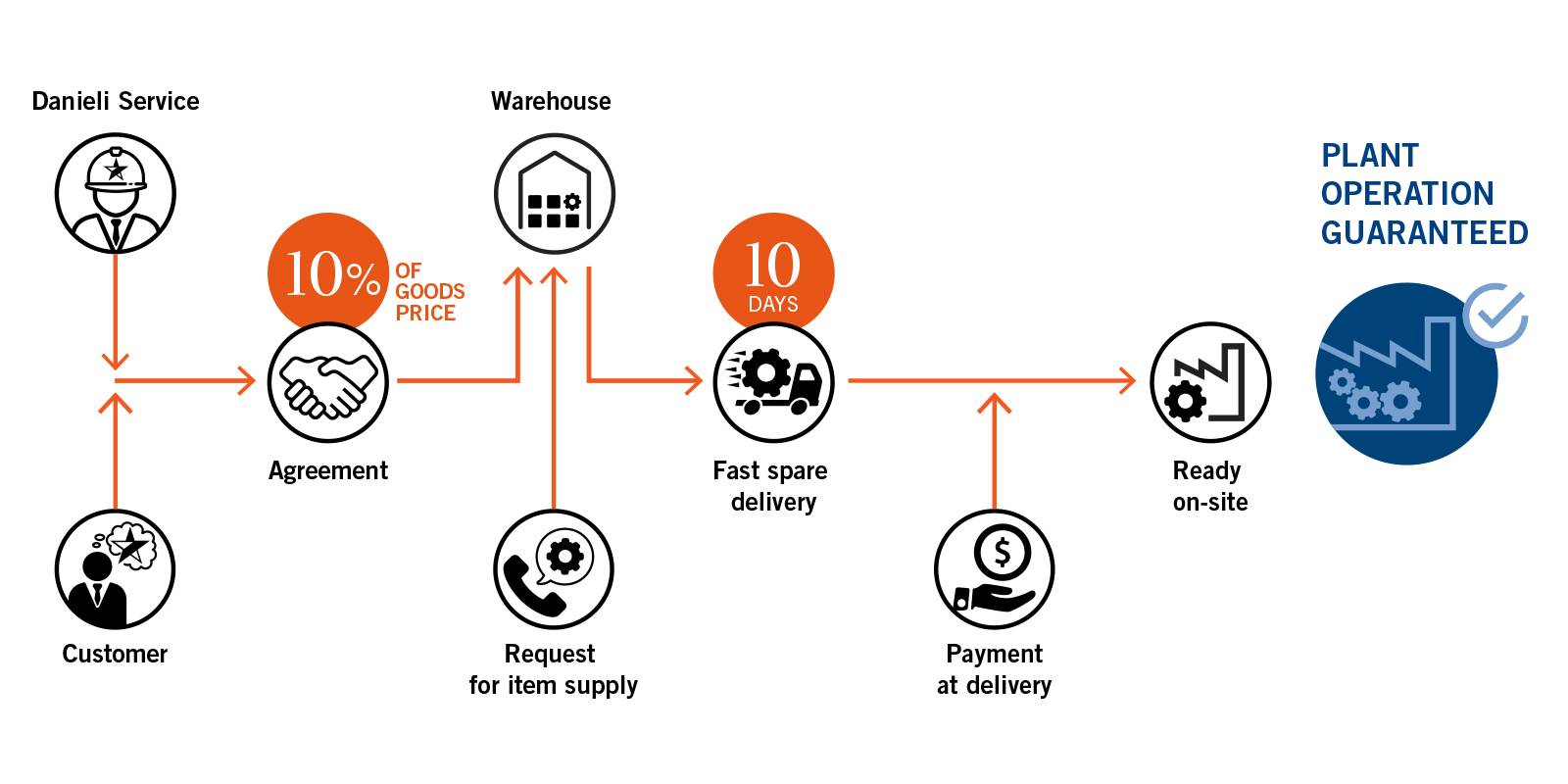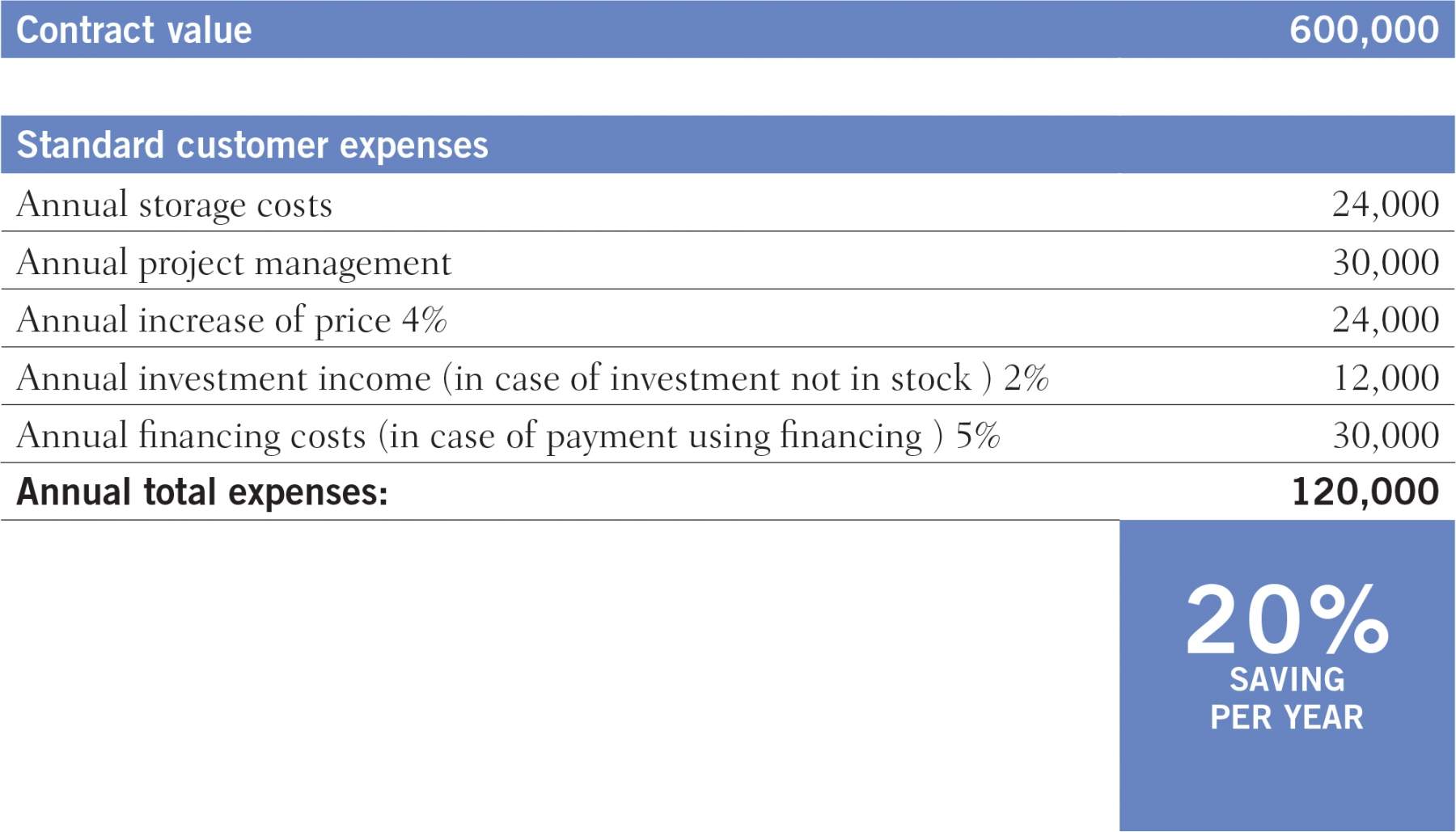
C-Stock Danieli Consignment Stock system. A step forward in OpEx reduction


In a period where steel producers are more and more focused on OpEx cost reduction, and in order to become a reliable partner in our customer’s efforts to achieve their production and operation targets, the C-Stock Consignment Stock System presents a unique opportunity for customers to select Danieli as provider for the supply of high turnover data-x-items such as wear-and-tear parts, and moreover to have the opportunity to benefit of all the most recent improvements in terms of material, shape and/or quality.
The Danieli C-Stock Consignment Stock Solution provides the customer for the choice of components, their number, and storage by Danieli, plus actual billing upon the withdrawal of the asset.
This system allows the customer to avoid costly procurement, dilution of parts expenses, and rapid and continuous availability in order to always guarantee production. In combination, it is also possible to propose the installation of one or more automated vertical warehouses, an external Danieli supply.
In any case, this type of management involves checking the number of pieces available, sending into production of the amount collected to guarantee the quantity established in the contract period, the flexibility in varying the codes and quantities based on actual requirements and usage.
Consignment stock is stock legally owned by one party, but held by another, meaning that the risk and rewards regarding the said stock remains with the first party while the second party is responsible for distribution or retail operations. Ownership of consignment stock is passed only when the stock is used (sold). So, it is not transferred until its use is required.

A consignment agreement is an agreement between a consignee (customer) and consignor (Danieli) for the storage of the commodity. The consignee may take goods from the consignment stock for use subject to payment to the consignor agreeably to the terms bargained in the consignment agreement.
Fulfillment of certain conditions is requested by the customs and VAT authorities. For example, due to the European VAT.
Risk reduction. Consignment stock makes it possible to share and reduce the risk – the supplier risks the capital investment that is associated with the stock, while the customer risks setting aside retail space for the product. This effectively allows suppliers and retailers to ‘test the waters’ on a product without running the risk of a significant financial loss. It works out better for both parties to figure out what products sell best in which markets before investing more capital into them.
Reducing inventory costs. One obvious advantage to retailers of holding consignment stock is the opportunity to save on inventory costs. In not having to pay the supplier until the goods are sold, the business is able to use this capital on other projects, and benefit from the increase in cash flow. The major advantage to the supplier is that they are able to get a product that they believe they can sell in front of end-users, as well as creating additional exposure within their target market.
Lead time. A benefit for both the retailer and supplier when it comes to consignment inventory is that it generally reduces the lead-time on products. As it is in both the supplier’s and the retailer’s best interests to keep the inventory at a functioning level, it is usually replaced as soon as it is sold, eliminating any loss of business due to a lag time between goods.
Example of economical advantages for a C-Stock consignment agreement:



Trump weighs using $2 billion in CHIPS Act funding for critical minerals

Codelco cuts 2025 copper forecast after El Teniente mine collapse

Electra converts debt, launches $30M raise to jumpstart stalled cobalt refinery

Abcourt readies Sleeping Giant mill to pour first gold since 2014

Barrick’s Reko Diq in line for $410M ADB backing

Nevada army depot to serve as base for first US strategic minerals stockpile

Tailings could meet much of US critical mineral demand – study

Viridis unveils 200Mt initial reserve for Brazil rare earth project

SQM boosts lithium supply plans as prices flick higher

Energy Fuels soars on Vulcan Elements partnership

Northern Dynasty sticks to proposal in battle to lift Pebble mine veto

Giustra-backed mining firm teams up with informal miners in Colombia

Critical Metals signs agreement to supply rare earth to US government-funded facility

China extends rare earth controls to imported material

Galan Lithium proceeds with $13M financing for Argentina project

Silver price touches $39 as market weighs rate cut outlook

First Quantum drops plan to sell stakes in Zambia copper mines

Ivanhoe advances Kamoa dewatering plan, plans forecasts

Texas factory gives Chinese copper firm an edge in tariff war

Energy Fuels soars on Vulcan Elements partnership

Northern Dynasty sticks to proposal in battle to lift Pebble mine veto

Giustra-backed mining firm teams up with informal miners in Colombia

Critical Metals signs agreement to supply rare earth to US government-funded facility

China extends rare earth controls to imported material

Galan Lithium proceeds with $13M financing for Argentina project

Silver price touches $39 as market weighs rate cut outlook

First Quantum drops plan to sell stakes in Zambia copper mines

Ivanhoe advances Kamoa dewatering plan, plans forecasts


















